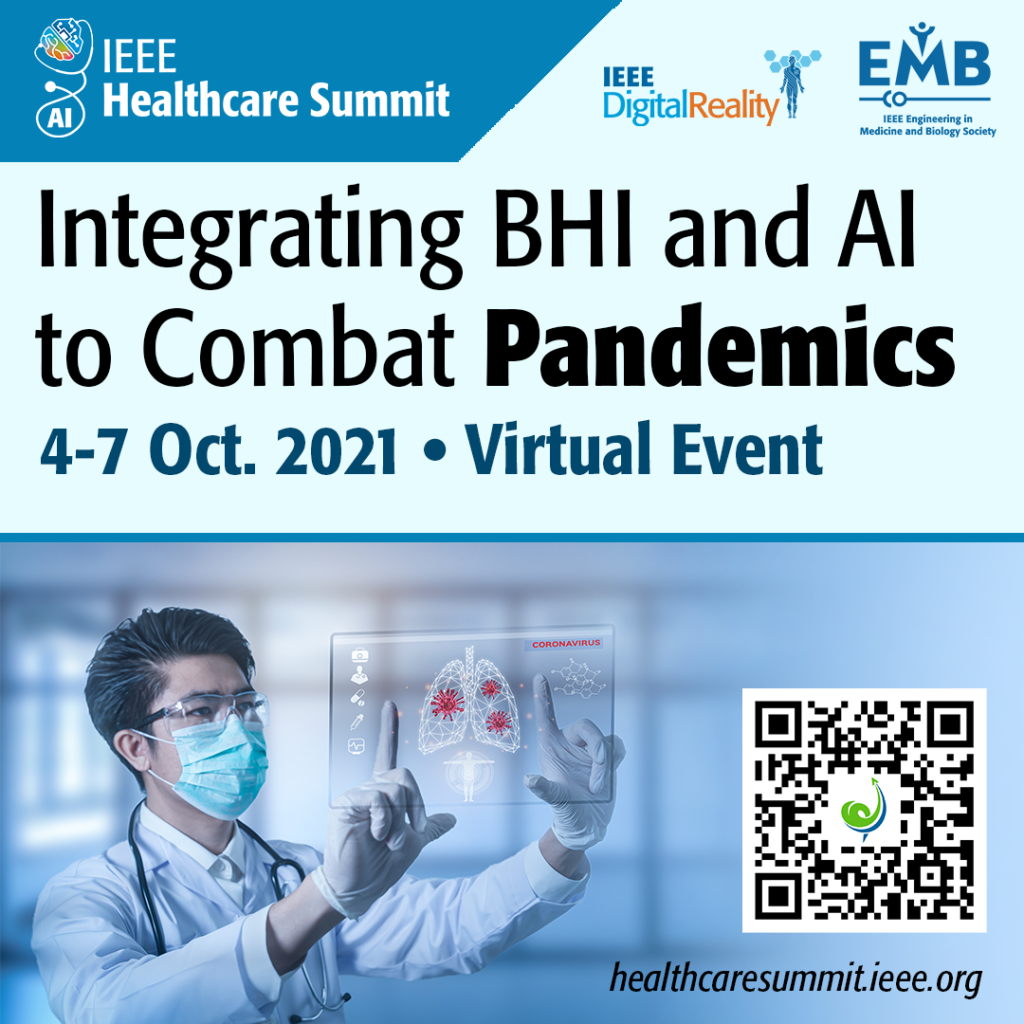1st Annual IEEE Healthcare Summit
28 September, 2021

Conference Overview
4-7 October 2021 | Virtual Event
On 12 March 2020, the World Health Organization (WHO) declared the COVID-19 (COronaVIrus Disease 2019) outbreak a pandemic. COVID-19 has spread to more than 200 countries, territories, and international conveyances, infected more than 220 million people, and taken more than 4.5 million lives globally. The first annual IEEE Healthcare Summit will be a virtual event held on 4-7 October 2021. This event aims to report progress made in the fight against COVID-19, and in better preparations for future pandemics, through the integration of Artificial Intelligence (AI) methods and tools with Biomedical and Health Informatics (BHI):
- Translational bioinformatics: use genomics and proteomics to do SARS-CoV-2 subtyping, and build tools to develop a targeted vaccine or drug, to do early screening to limit outbreak, and to perform evolution trajectory prediction;
- Sensor informatics: use real-time wearable sensor data to monitor asymptomatic and mild-symptom home-based patients, to treat severe-symptom patients in hospitals, and COVID-related sequelae (e.g. neurological and cardiac disease);
- Imaging informatics: use CT, X-rays, MRI, ultrasound, and other imaging modalities with RT-PCR data to improve diagnosis, prognosis, and monitoring of patients with COVID-19, or other infectious diseases in the event of future pandemics;
- Clinical informatics: use multimodal data to find effective clinical care workflows for critically ill patients, to track the occurrence of COVID-related sequelae for long term follow-up, and to perform risk assessment and decision making;
- Public health informatics: use epidemiological models to analyze outbreak data for supporting population health management, resource supply chains, and future care preparation;
- Mental health informatics: collect and analyze mental health data during the pandemic to model behavior changes caused by the pandemic, and to evaluate the consequences of policies for future preparedness;
- Mixed VR/AR and Robotics: integrate BHI with VR, AR, and robotics to effectively visualize omic, imaging, sensor, and population pandemic data, to train medical robots, and to assist public health policy making for preparedness; and
- Fairness and ethics: use pandemic data to identify regional, racial, and ethnic disparities in infection and vaccination rates and the causal factors of the disparities, for the preparedness of future pandemics and fair resource allocation.
More info: https://healthcaresummit.ieee.org/


